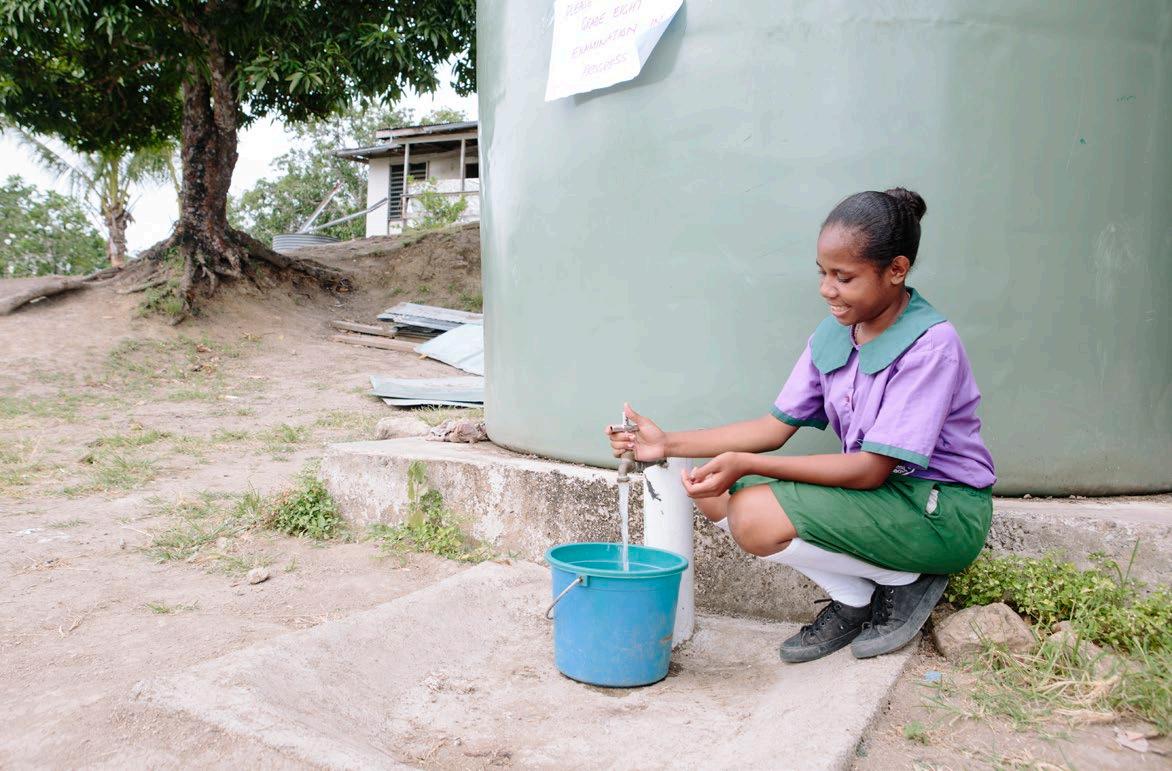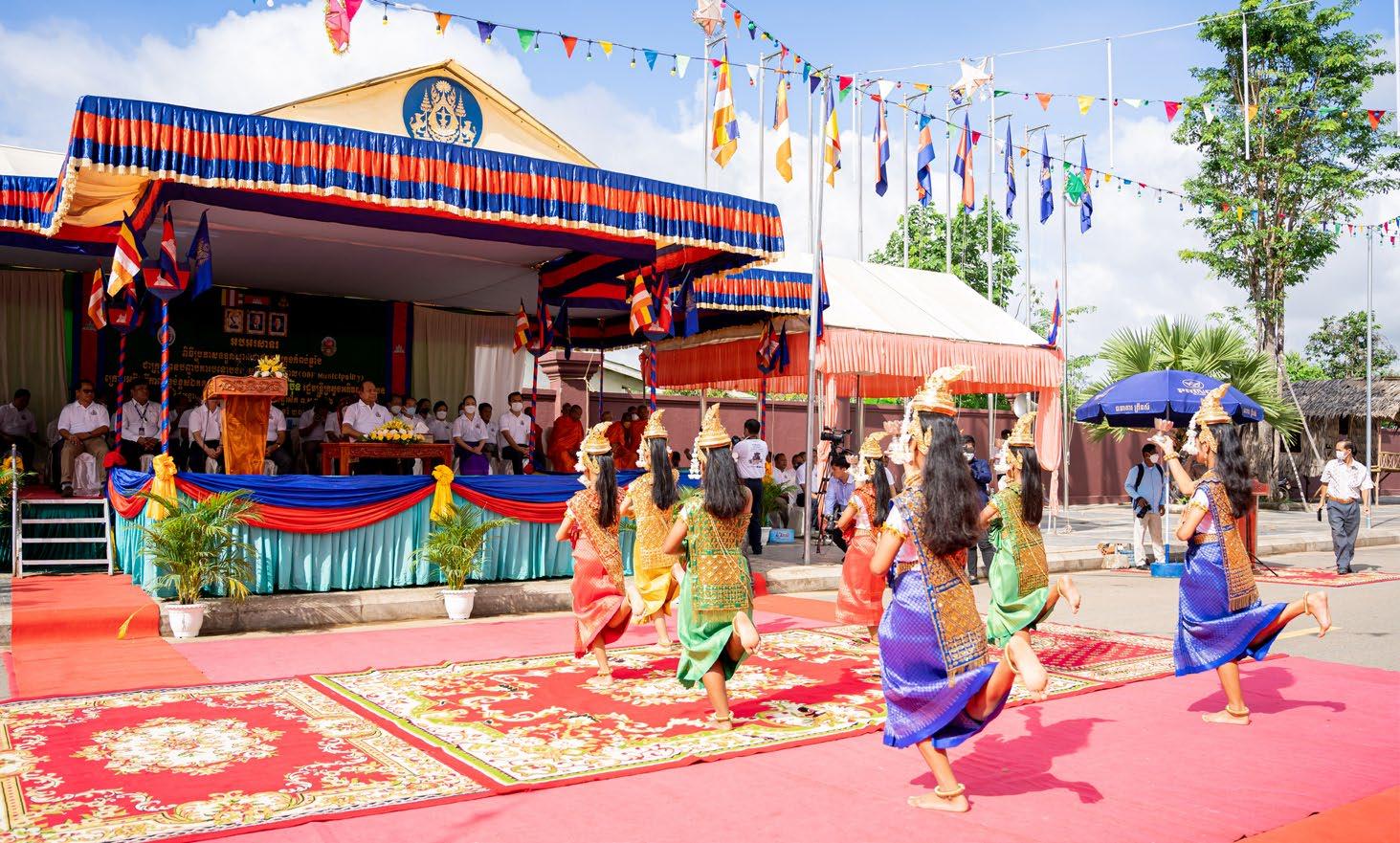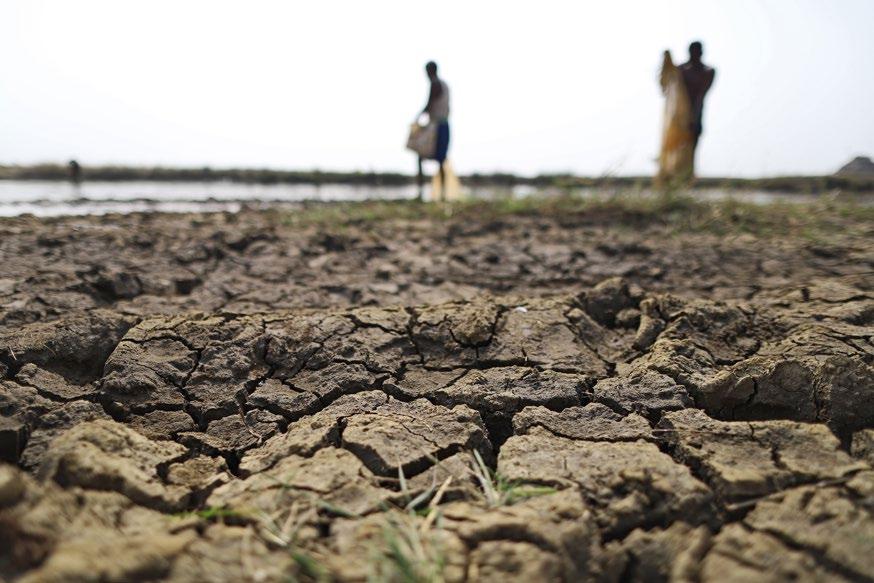
3 minute read
Our Achievements this year
As we faced the second year of the COVID-19 pandemic and the challenging working contexts it created, our teams in Australia, Cambodia, Papua New Guinea (PNG), and Timor-Leste continued to navigate the uncertainty with a focus on the safety and wellbeing of all staff, communities and partners. With travel restricted, we were able to draw on the expertise and leadership of country staff to stay focused on our mission despite COVID-19.
Throughout the year, we seized opportunities to incorporate our vital behaviour change work into COVID-19 responses. This included handwashing and hygiene awareness training and education, supporting the vaccination role out in Cambodia, and using COVID-19 government mandates to enable our teams to build more handwashing facilities in schools across PNG, keeping students safe from a range of diseases, not just COVID-19.
Advertisement
Along with our achievements responding to COVID-19, we are proud that throughout the year we were able to continue to implement critical programs with a focus on driving water, sanitation and hygiene systems change, advancing gender equality through WASH, catalysing health systems change through our work on healthcare facilities, and trialling and piloting new work on climate resilience WASH.
WaterAid/ Tom Greenwood
A student draws water from a tank to wash her hands in Rigo District, Papua New Guinea
Highlights throughout the year include:
•Supporting governments to achieve
Open Defecation Free (ODF) status: We supported governments and communities to achieve ODF status in Kandal Province in Cambodia and Manufahi and Liquica Municipalities in Timor-Leste.
•Catalysing new financing for WASH:
Through the quality of our District WASH work in Wewak in East Sepik, PNG, we were able to influence the Provincial Government to increase financing for WASH.
•Promoting data to drive decision-making
and better access to WASH: We continued to work with government stakeholders in Cambodia, PNG and Timor-Leste to improve WASH data information systems.
•Strengthening capacity of civil society
organisations: We continued our emphasis on women’s leadership, particularly in Cambodia, as well as working in PNG on referral pathways and safeguarding training, and additional training for Disabled People’s Organisations in Cambodia.
Open Defecation Free Declaration event in Kampong Chhnang Province, Cambodia

•Building the case for action on Menstrual
Health and Hygiene in the Pacific: We supported Pacific civil society organisations as they documented the content for girls and women in the Pacific accessing menstrual health and hygiene products.
•Supporting innovation in informal
settlements: We trialled innovative water service delivery models with the Motu Koita
Assembly in peri-urban areas across PNG, to improve access to water in households.
•Supporting WaterAid Myanmar at a time
of political crisis: We worked with the
WaterAid Myanmar team and colleagues from WaterAid UK to turn a health system strengthening program into an emergency
WASH program.
•Making climate resilience WASH a key
feature of all our work: Through new funding for Cambodia, PNG and Timor-
Leste, we used the last 12 months to begin trialling new approaches to integrating
WASH and water resource management as we work to respond to the impacts of climate change. change. In addition to these programming highlights, we actively engaged in WaterAid global policy processes aimed at influencing governments and donors around the world. We used our expertise on gender, health, system strengthening and climate resilience to inform the development of the WaterAid global strategy. We used these same expertise to work in partnership with Australian WASH sector actors to influence DFAT to sustain a focus on the importance of WASH for the Southeast Asia and Pacific Regions.










